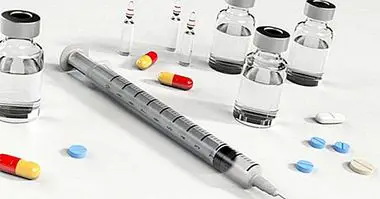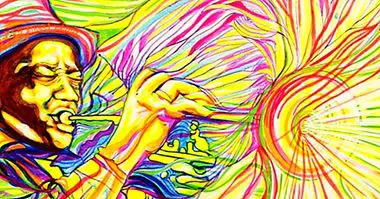The 5 consequences (psychological and relational) of an addiction
The reasons and circumstances for which a person consumes substances in a compulsive and addictive way are as many as people consume. Each one will have its motives, causes and effects, different in each human being. However, similarities can be established in the consequences in severe cases of substance addiction . Exactly of this we will speak in this article.
- Related article: "Types of drugs: know their characteristics and effects"
The consequences of addiction
Below you can find a review of the main consequences of substance use.
1. Lack of vital sense
One of the aspects that is often repeated in, at least most of the cases, is the feeling that life does not make sense , as well as the lack of motivation to progress, sustain a job, study or social ties; or, also, the idea that you can not change and improve the quality of life, as if the addiction was imposed and the person could not have an impact on it. In short, feeling downcast, without strength, "lost".
- Maybe you're interested: "Existential crisis: when we do not find meaning in our lives"
2. Low self-esteem and feeling of self-efficacy
Consuming substances to silence or stop the anguished thinking, evade, calm down, escape ?, what? Probably of oneself, of one's fears, the anguish accumulated over years, frustrations, pain ... escaping from being who one really is, hiding behind the "protective mask" that is building an addiction.
Generally experiencing low self-esteem and a poor self-concept, addicted people they are perceived as not deserving of good things , are classified as "losers". They feel that they have lost their dignity, they feel that they are "nobody". They consider that they should be left alone, as if they did not deserve to have a worthy company, (although they really generate chills to think of loneliness).
For the compulsive consumer to begin the path of drug withdrawal, it will be necessary to come to the idea that a health problem is being experienced, something that is beyond their control and will . Being able to make a change depends on wanting to do it, and for this many times you need a "touch bottom" that helps reflect.
In fact, while a subjective weakening persists, it will be very difficult for the person to take the necessary strength to decide to make changes in the lifestyle he is leading, because there is vulnerability, confusion, dependence, lack of control over one's life.
3. Crisis in social ties and loss of control
Absences appear. To give an example, absences in family events, tours (absences) of several days, Misinformation of families regarding whereabouts and health status . The advice, the reproaches or the desire that the addicted person open their eyes and decide to move away from the consumption, many times they are not enough.
4. Complications at work level
As an addiction progresses gradually, difficulties arise in different areas of the person's life. The work area can also be affected. Late arrivals that occur with absences, accidents at work due to fatigue or as a residual effect of that consumption that could not be avoided before starting the workday. Or even, in an advanced instance of problematic consumption, choose to consume substances within the same working time and context, when already the self-imposed limits are minimal or nil.
5. Effects on the body
In severe cases of addiction, people fail to take seriously the consequences of the intake of harmful substances for the organism. And many times it happens that awareness of the body and damage when they are already advanced and serious. As examples we can leave posed heart diseases, circulation problems, dysfunctions and pathologies in various organs, especially the liver, ulcers, deterioration in the nervous system.
It will be important here to understand that it is a health problem, to accompany as much as possible until the person in question can recognize that he has a problem and that this problem has a solution, so he should ask for and accept help. Little by little the person will stop feeling nobody to be again, incorporating tools to start being able to be, without drugs.



















